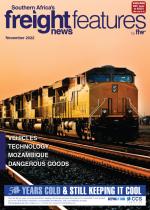The Association of Shipping and Freight Forwarding Agents and Port Operators of Mozambique (Asantrop) has called for a review of toll fees in the region, calling them yet another tariff barrier.According to Desiderio Fernandes, representative of Asantrop, there is a need for synergy when it comes to toll fees. “There is no logic in how it currently works,” he told Freight News. “Some countries charge a rate per kilometre while others just have a lump sum. We need a harmonised approach to tolling to ensure that transporters and their forwarders know what they are dealing with and can plan and budget adequately.”He said issues like toll fees easily became a barrier to trade, driving up the cost significantly. “We are not doing ourselves or our region a favour by not looking at harmonising these and other costs. All we are doing is making the cost of freight more expensive. Africa can thrive and make the business work, but it needs government entities to look far more seriously at aligning costs of goods and cargo – be it in the transport or the freight forwarding segment.”Fernandes said what was also crucial in the region was the issue of rail as too much cargo was still on road, which was taking its toll on the infrastructure. “Until there is rail infrastructure and service that is reliable, freight will remain on road.”In Mozambique there was a rail service, he added, but the problem was the unreliability of the service. “You simply cannot book cargo because you do not know when or even if there is going to be a train. We did an internal exercise measuring the cost of moving cargo by road and by rail. While the price was the same the reliability and time the rail service took was uncompetitive and took days longer.”He said for rail to be a viable option it would need to not only improve efficiency and reliability, but also look at how it could reduce freight costs.From a regional perspective, there would need to be an alignment of infrastructure – with all countries using the same railway gauge and making agreements allowing crew and equipment to operate across borders.“You cannot stop at each border and either change the crew or the locomotive each time you pass into a new country. It wastes time and drives up the cost, especially if one is crossing several countries.”

